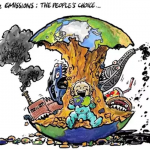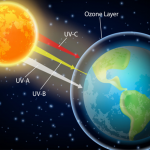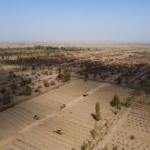
The entire globe is in a dilemma where immediate intervention is necessary to mitigate adverse environmental effects and causes for climate change. Climate experts, governments, and environmental activists worldwide have proclaimed that very same situation as a “climate emergency.” In recent years, warming temperatures, melting glaciers, ecological pollution, unpredictable weather changes, vanishing coral reefs, oxidizing oceans, and other environmental issues have signaled a severe threat to human beings.
In a situation where many global leaders remain mute on this alarming threat, environmentalists worldwide have embraced an activist approach to addressing it. Today, environmental activism is primarily concerned with raising awareness and taking appropriate steps on ecological issues to rescue the world and attain environmental sustainability.
The environment has seen significant transformations in the last several decades. Extreme weather, unanticipated natural disasters, increased global warming, accelerated green gas emissions, ozone layer depletion, and glacier melting are just a few of the severe and substantial environmental changes that the world is currently experiencing. The situation is deteriorating by the day, threatening human existence. A few countries and agencies have declared this situation as an ’emergency,’ necessitating immediate and cautious preventative steps. However, a significant number of international leaders have maintained silence on the subject, and environmentalists warn that global leaders are acting irresponsibly by refusing to accept the potentially disastrous effects of the climate crisis.
While the rest of the world ignores the issue, environmentalists have chosen an activist approach, aiming to raise awareness and build environmental movements to persuade the public to act intelligently in the face of a climate emergency. Ecological activism brings together a variety of interested groups, organizations, and members of the general public to solve environmental challenges. Environmental movements emerge when activists and regular individuals come together to develop a social or political action for ecological conservation and protection.
Digital media has dramatically assisted modern environmental activism by increasing communication and engagement between campaigners and the public. Content posted on digital media can reach billions of people in a short period. It encourages open discussion and debates on a wide range of environmental concerns.
In recent years, the importance of digital media in the establishment of ecological movements has risen. In general, ecological activists utilize digital media for various objectives, including raising awareness, organizing protests, and sharing information about current events globally and nationally. Not only do activists use digital media tools, business and public entities and non-governmental organizations (NGOs) also utilize digital media to involve people in environmental change.
As digital media has become a vital driving force for reforming social movements, modern environmentalists are gradually gaining the backing of various digital media platforms for a transformation. These initiatives attempt to raise awareness of climate emergencies while also achieving significant progress in environmental sustainability.
Today, social media hashtags, online campaigns, discussion forums, and other environmental activism-related digital media activities play a crucial role in raising environmental awareness. By circumventing traditional media, digital media reach many people engaging them in environmental activism and raising awareness of climate emergencies. Let us hope that, as we have become more enamored with digital media, the present generation will be able to bring about a digital transition in environmental sustainability.
Charitha Marcus
Lecturer (Probationary) in Mass Communication
Dept. of Sinhala & Mass Communication
Faculty of Humanities & Social Sciences
University of Sri Jayewardenepura





